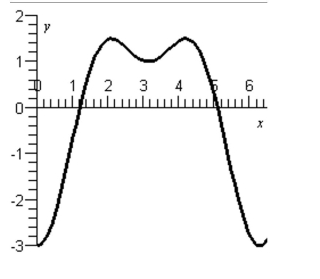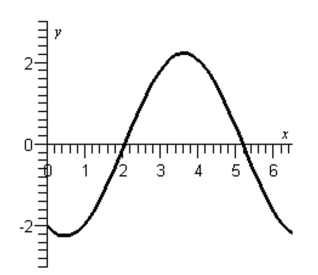Exam 5: Analytic Trigonometry
Exam 1: Functions and Their Graphs118 Questions
Exam 2: Polynomial and Rational Functions120 Questions
Exam 3: Exponential and Logarithmic Functions120 Questions
Exam 4: Trigonometric Functions118 Questions
Exam 5: Analytic Trigonometry120 Questions
Exam 6: Additional Topics in Trigonometry120 Questions
Exam 7: Linear Systems and Matrices120 Questions
Exam 8: Sequences, Series, and Probability119 Questions
Exam 9: Topics in Analytic Geometry120 Questions
Exam 10: Analytic Geometry in Three Dimensions120 Questions
Exam 11: Limits and an Introduction to Calculus40 Questions
Exam 12: Review of Graphs, Equations, and Inequalities99 Questions
Select questions type
Determine which of the following are trigonometric identities.
I.
II.
III.
(Multiple Choice)
4.7/5  (30)
(30)
Determine which of the following are trigonometric identities.
I.
II.
III.
(Multiple Choice)
4.9/5  (40)
(40)
Factor; then use fundamental identities to simplify the expression below and determine which of the following is not equivalent.
(Multiple Choice)
4.8/5  (46)
(46)
Approximate the solutions of the equation by considering its graph below. Round your answer to one decimal.

(Multiple Choice)
4.9/5  (37)
(37)
Find the exact value of given that and . (Both and are in Quadrant II.)
(Multiple Choice)
4.9/5  (39)
(39)
Use the graph below to approximate the solutions of the equation on the interval . Round your answer to one decimal.

(Multiple Choice)
4.8/5  (34)
(34)
Find the exact solutions of the given equation in the interval .
(Multiple Choice)
4.7/5  (41)
(41)
Determine which of the following are trigonometric identities. I.
II.
III.
IV.
(Multiple Choice)
4.8/5  (33)
(33)
Use the cofunction identities to evaluate the expression below without the aid of a calculator.
(Multiple Choice)
4.9/5  (39)
(39)
Find the exact value of given that and . (Both and are in Quadrant IV.)
(Multiple Choice)
4.8/5  (34)
(34)
Find all solutions of the following equation in the interval .
(Multiple Choice)
4.9/5  (35)
(35)
Use the trigonometric substitution to write the expression as a trigonometric function of , where .
(Multiple Choice)
5.0/5  (32)
(32)
Multiply; then use fundamental identities to simplify the expression below and determine which of the following is not equivalent.
(Multiple Choice)
4.9/5  (39)
(39)
Showing 61 - 80 of 120
Filters
- Essay(0)
- Multiple Choice(0)
- Short Answer(0)
- True False(0)
- Matching(0)